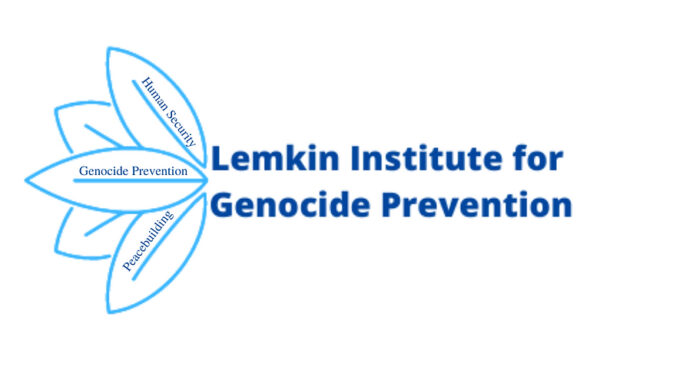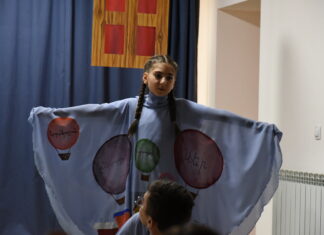The Lemkin Institute of Genocide Prevention on October 28 issued the following statement:
The Lemkin Institute of Genocide Prevention is disappointed with the outcome of the UN mission’s visit to Artsakh (Nagorno-Karabakh) on October 1, which took place after the entire Armenian population of Artsakh had already fled due to forcible displacement following the recent Azerbaijani invasion. It is difficult to understand what the purpose of such a mission was and why there was never more pressure for Azerbaijan to allow a mission into Artsakh during Azerbaijan’s 9-month blockade of the region that led up to the invasion. The Lemkin Institute calls on the UN to prepare a proper mission to the Republic of Artsakh, one that is inclusive of international team members from countries neutral to the conflict to conduct a thorough analysis of the current situation on the ground. In order to ensure the rights of the Armenians in Artsakh, the UN must act with professionalism, impartiality, and commitment to the values presented in the UN Charter.
The Lemkin Institute of Genocide Prevention is disappointed with the outcome of the UN mission’s visit to Artsakh (Nagorno-Karabakh) on October 1, which took place after the entire Armenian population of Artsakh had already fled due to forcible displacement following the recent Azerbaijani invasion. It is difficult to understand what the purpose of such a mission was and why there was never more pressure for Azerbaijan to allow a mission into Artsakh during Azerbaijan’s 9-month blockade of the region that led up to the invasion. If the United Nations is not going to take genocide seriously, it would be better if it sent no missions at all to regions that have experienced genocide.
According to the UN, “the mission aimed to assess the situation on the ground and identify the humanitarian needs of both the people remaining and those who are on the move”. Despite the complex purpose of this visit by the mission, the assessment itself and the statement on the outcome of that assessment were completed within one day, begging the question of just how seriously the UN mission could have taken the task of an assessment on the ground. It is worth mentioning that this was the first UN visit to the region in 30 years.
Prior to this visit, concerns about the consistent political insecurity of Armenians in Artsakh and threats to the Armenian population within the region had been raised several times within UN bodies. Two UN Security Council meetings were convened on the topic of ongoing threats to the Armenians of Artsakh (on August 16, regarding the full blockade imposed on the Republic of Artsakh by Azerbaijan, and on September 21, regarding the Azerbaijani military attack on the Armenian population in Artsakh). In both meetings, the majority of the Security Council’s member states condemned Azerbaijan’s actions, stating that they posed a threat to the security and well-being of the region’s Armenians and discouraged any peacemaking efforts in the region. In addition to these condemnations, the International Court of Justice has ordered Azerbaijan on two separate occasions (on February 22 and July 6, 2023) to reopen the Lachin Corridor — the humanitarian route connecting the Republic of Artsakh with Armenia. All statements and ICJ orders have been ignored by Azerbaijan.
The Lemkin Institute has issued multiple Red Flag Alerts for Azerbaijan since the Lachin Corridor was blockaded in December 2022, as well as an Active Genocide Alert and SOS alerts indicating an extremely high risk of genocide for the Armenians in Artsakh. Given the UN representatives’ clear knowledge of the risks to the Armenian population in Artsakh (as demonstrated by the convening of two Security Council meetings on the topic), it is very surprising to us that the mission would visit this region only after the end of the Azerbaijani offensive and after the exodus of more than 100,000 Armenians from the former Republic. The fact that Azerbaijani President Ilham Aliyev donated USD $1 million to the UN Human Settlements Program on September 30 — just one day prior to the mission’s deployment to Nagorno-Karabakh — only increases our concerns regarding the honesty and transparency of the mission.








